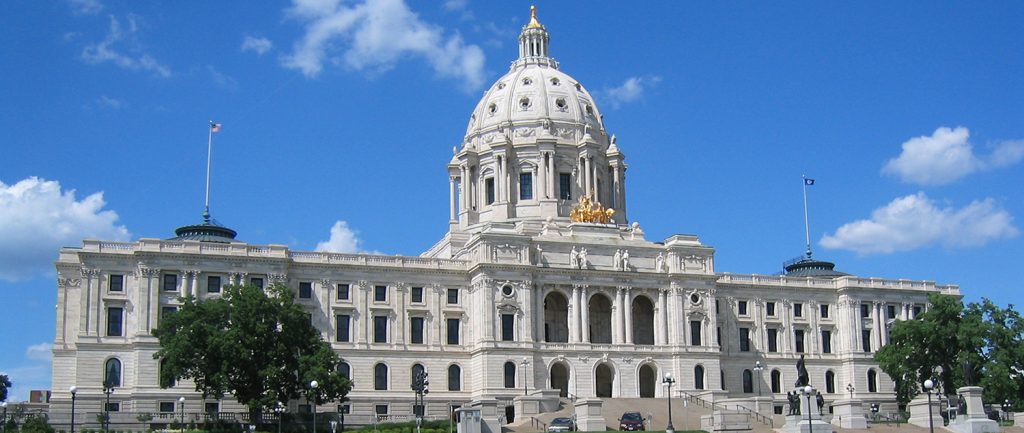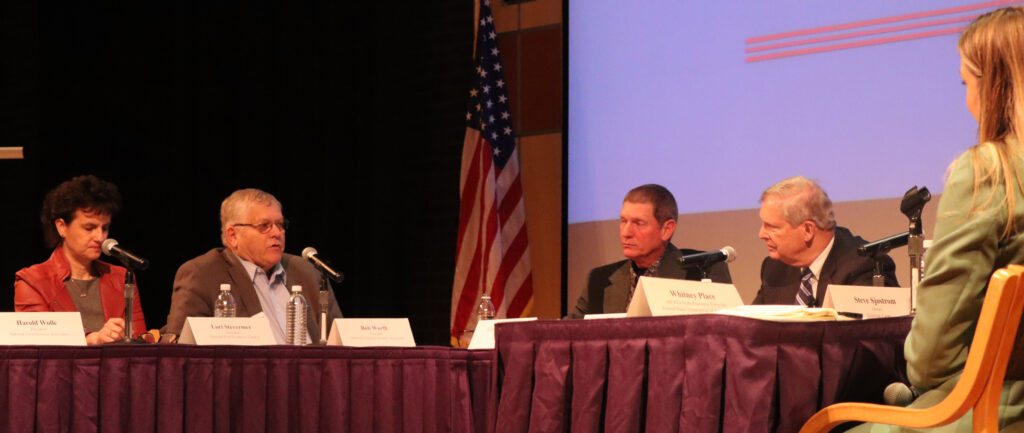Tina Smith can finally stop running.
After being appointed to a U.S. Senate seat in 2017 following the resignation of Al Franken, the former Minnesota lieutenant governor had to win a special election in 2018 to complete the final two years of that term. After that, she almost immediately had to return to the stump for the 2020 election. And with all eyes on the presidential race and the coronavirus pandemic hanging over everything, it was a campaign like no other in American history.
Whew!
On Tuesday, Smith, a Democrat, won reelection, defeating her Republican challenger, former U.S. Congressman and talk-radio host Jason Lewis, by a little more than five percentage points.
Now she can breathe a little easier – at least from a campaigning standpoint – with a six-year term ahead of her.
“Thank you, Minnesota,” Smith tweeted. “You showed up to say YES to lifting up the best of who we are, to continue working together and make progress. I’m ready to keep doing the work with all of you, together.”
During her abbreviated first term in the Senate, Smith sought for and landed a spot on the Senate Agriculture Committee (along with fellow Minnesota Senator Amy Klobuchar) and has since shown her support for Minnesota farmers, advocating for the federal government for more rural aid – whether that’s COVID-19 relief, improving trade, access to better health care (including mental health resources) or promoting renewable energy such as biofuels.
During a candidate forum during a virtual FarmFest last August, Smith touted her work on the Ag Committee and praised its bipartisan framework as it tackles all of those issues.
“It’s traditionally not a place where are there are big Republican and Democratic divides,” she said. “It’s a place where Republicans and Democrats come together.”
Still, the Smith-Lewis race was a key one for Democrats hoping to maintain their current seats and flip the balance of power in the Senate during this week’s election. While Smith held serve, her party likely will not move into the majority. The Democrats needed a net-gain of four seats (or three seats plus the White House). They flipped two but lost one, while still awaiting results of close races in other states, including a run-off election in Georgia in January.




